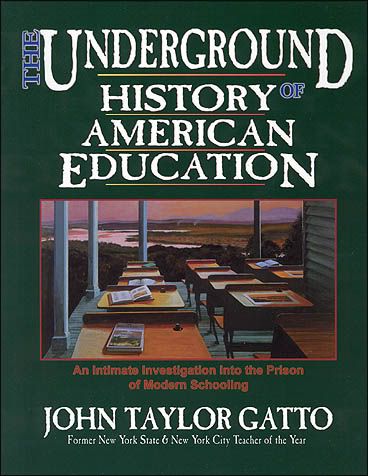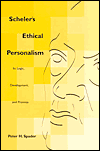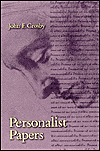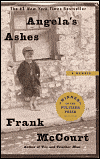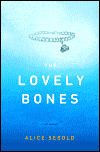
A few years back, I had the opportunity to make a short film to share with some friends in a mini-film festival we planned to put on. Ultimately, I didn't get very far myself (in all honesty, most of us didn't), but I did have some ideas. My favorite was the following, and I can't help but think it at least had (and perhaps still has) some potential.
What I wanted to make was a documentary, a documentary about something
special. This special thing would actually be many things though. My hope was that it would surprise and entertain the audience, but also intrigue, simultaneously stirring the mind in thought and inspiring. For the special thing that my documentary would have explored was truly a marvel, even if everyday and ordinary. And so it goes:
The film would have started completely black; the viewing room would have needed to be particularly dark also. After a short period of silence a voice would come in, asking the audience to participate in some thought experiments. "Imagine," it would say, "that you have gone blind." As the monologue continued, small vague images would come and go in the blackness, images of things one would likely especially miss if all of a sudden blind. While they were momentarily appearing and vanishing, the voice might also pronounce, "All of these, you once saw, but no more."
Then blackness again. While still in the dark void, a second experiment would follow, the audience now being asked to imagine
never having had vision. Thus, they would not even have the muddy images in their minds which minutes ago they may have been cherishing so much in the darkness. They would be asked to try and fathom how different life would be like this. (Perhaps it would be noted that this could be done with the other senses as well.)
Finally, the voice would remark that the audience was about to go on a great adventure, being healed from their blindness, in order to see things anew, for the first time. Suddenly a bright light would then flash across the screen (grand music would build up as well), the whiteness slowly becoming clearer, so that eventually a beautiful scene of nature became visible…
The rest of the film isn't really worked out in detail, but it'd basically be about what I just said:
seeing things anew. I find too many people in life who have lost a sense of wonder for too many things. Yet is there not so much to marvel at in this strange universe of ours! G.K. Chesterton aptly remarks in his book
Tremendous Trifles, "The world will never starve for want of wonders; but only for want of wonder."
Rather than focus upon grand vistas and the astonishing though, my film would especially examine wonder in the seemingly monotonous and mundane. Have you ever given much thought to how many things that perhaps once excited you are now seen as merely part of the "ordinary"? Chesterton seems to see this as often largely a consequence of growing up: "A child of seven is excited by being told that Tommy opened a door and
saw a dragon. But a child of three is excited by being told that Tommy
opened a door." [emphasis mine]
But just because this loss of wonder typically happens as we grow old, is not to say that such a loss is a good thing. In my film then, I wanted to suggest that the child of three is right to be excited at the simple act of opening a door, for such an action truly is incredible. In fact, to a degree, such a response is really worth imitation by us "older folks", for the truth is that there is nothing ordinary in this world we live in; deep down, everything really is
extraordinary!
It was with this sense of wonder at mere existence in mind, that Chesterton opposed the thinking common among some in his day, which spoke of "many a [failed] man as a Great Might-Have-Been." Rather, "it is a more solid and startling fact that any man in the street is a Great Might-Not-Have-Been." In all honesty, I think this can also fittingly be said of everything that simply
is. Perhaps a good title for my short little flick – which never fully came to be itself – would have been
The Wondrous Might-Not-Have-Beens.
The child often wonders at anything precisely because everything is new to him and didn't exist before – it is a world of Might-Not-Have-Beens, whether we're talking about a beautiful sunset or plain old cup (I've seen a 1 year old play with a plastic cup for hours!). In reality however, the situation never changes, whether one is 1 or 10 or 100 years old. We still live in a world of Might-Not-Have-Beens, and we ourselves are each a Might-Not-Have-Been.
It is the combination of our new discoveries and interests, our limits in being able "to take it all in," and our simple laziness and pride at times, that lead us down the path of viewing so much as merely mundane and monotonous. It doesn’t have to be this way though. There’s no reason why we can't take some sort of pleasure in the "ordinary", for the ordinary truly is incredible!
And so I also wanted to show that one of the great benefits of this attitude towards all around us is a greater sense of gratitude for all that we have. Coupled with this gratitude however, also comes a sense of humor, for it is often in seeing things afresh that we notice their peculiarity and strangeness – something many times quite comical. Additionally though, all of this wonderment has the special character of rousing the deeper questions of life – what it means to be a human, is there meaning in life, how should we live, where is the divine (if anywhere at all), what about the problems of evil and suffering, etc. – questions which I don't think any of us should ever grow tired of asking and exploring.
Ultimately then, I think that generally speaking, if one opens themself up this far, they'll find a greater desire stirring within, a desire to live every moment to the fullest, as if it was the only one, precisely because in a sense, as far as we know, each moment really is the only one we have.
Chesterton once said, "If you look at a thing nine hundred and ninety-nine times, you are perfectly safe; if you look at it the thousandth time, you are in frightful danger of seeing it for the first time." Hopefully, this little reminiscent reflection of mine has similarly provoked you the reader out of any slumber and apathy (which we all succumb to at times) into which you'd possibly fallen into of late. May it inspire you too to see everything around you again for the very first time, gazing now upon it all, with wonder, fear, gratitude, laughter, and a new sense of vigor for living this great mystery of life that we all partake in.*
*Incidently, while I could have cited many different writers affirming what I just described, you may have noticed Chesterton was the only one chosen. I did it this way, because it is Chesterton more than anyone else, who opened me up to this sense of wonder and all that follows from it. In fact, I'll be quite honest, this more than anything else, is what drew me to Chesterton's writings, and it still is what I find to be best about his work. This isn't to say he's my favorite thinker – he's not, and I'm not as big a fan of him as I used to be. Yet I still can't help but admire much of his style and ethos –
that uncanny ability he has to open up a new source of imagination and wonder in the heart and mind of the reader.


